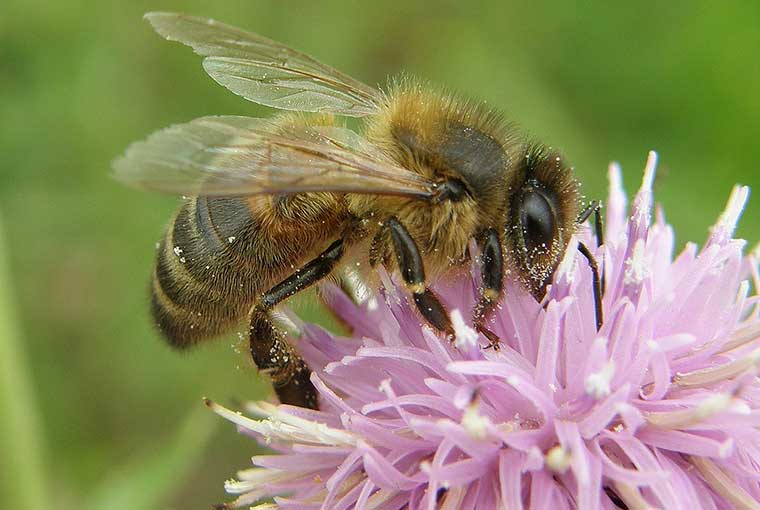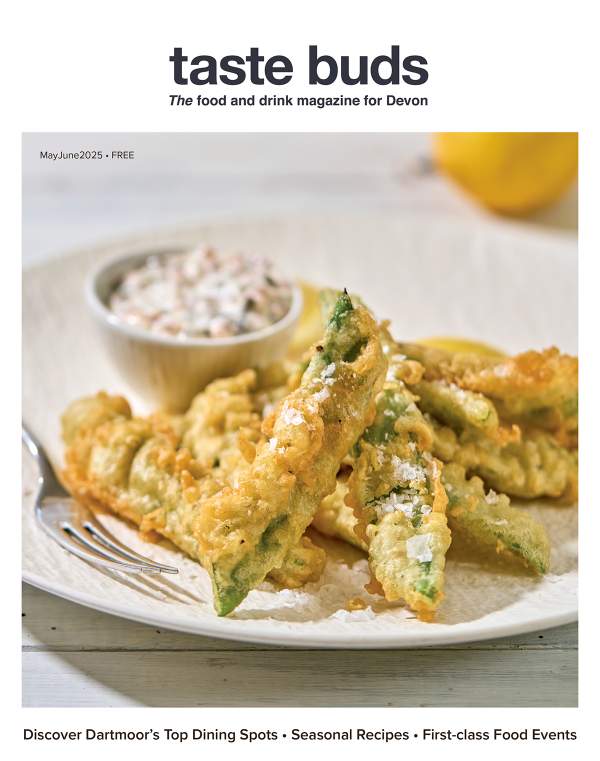
This nectar’s history dates back 4,000 years, but the current state of bees is worrying and honey is becoming an increasingly precious commodity. We need to take immediate action to reverse the dramatic decline of our bees and other pollinators caused by habitat loss, pesticides and climate change. Our food supply is under threat and, according to Buglife, the value of natural pollinators to agriculture in Britain is more than £500m annually. “A third of our food relies on pollinators, a group which includes moths, hoverflies, wild and solitary bees, as well as honeybees,” explains Andrew Whitehouse, Buglife’s South West Manager. “Honey bees, although not quite as endangered as some bees, are still affected by similar threats.” If we lose bees, our crops simply won’t get pollinated.
Buying and eating locally produced honey is something we can all do to help Devon’s honey bees. Big-brand ‘blended’ honey is often imported from China, Argentina and Europe, then bottled in the UK. Locally produced honey is better in quality but slightly more expensive, with higher nutritional value. Colin Sherwood started beekeeping eight years ago and has 25 bee colonies at his home near Honiton. “The taste of honey reflects what nectar the bees have been feeding on,” says Colin, who sells his honey in local shops. “The main crop in July and early August tends to be multi-floral, rape honey is produced in April, and if there’s a cider orchard near your colonies, honey tastes different yet again.”
More than 97% of all flower-rich grasslands have been lost in Britain since the 1940s; through intensive farming and changes to the landscape, much native wildlife has been confined to tiny fragments of habitat. Buglife’s recent Plymouth’s Buzzing project brought the countryside into the city by replanting wildflower meadows. “Plymouth has plenty of green space, so by managing it better, we can give our pollinators a real boost,” says Andrew. New on his agenda for summer 2014 is the South Devon B-Line project: creating corridors of habitat for insects between existing wildlife areas by planting wide strips of wildflower-rich grasslands south of the A38 between Plymouth and Torbay.
So there is hope for the future of bee populations across Devon, and the more home-grown bee products we cook with and consume, the more the county’s beekeepers will be supported.
Full of natural sugars and famous for its health benefits, local honey can be incorporated into your cooking in many ways. “Try making honey fudge or honey mustard salad dressing, honey date loaf or dried apricot and honey jam,” says Colin Sherwood, President of Devon Beekeepers’ Association, a group with 1,000 amateur beekeeper members (devonbeekeepers.org.uk). “Ferment honey with water and a decent sherry yeast to make mead or honey wine – the longer you leave it, the better it tastes!”
Furthermore, eating honey produced by foraging bees picking up grass pollens within three miles of your home could reduce hayfever symptoms, as well as easing numerous other ailments.
Lise Martin, co-owner of The Honey Doctor near Tiverton, knows there’s more to bees than just honey. “Our bee products include pollen granules, which can be sprinkled on fruit or yogurt, and propolis skin cream made with the substance bees coat their hive with as protection from fungal infection,” says Lise. “A drink of hot water with honeygar – honey mixed with apple cider vinegar – may help break down crystals formed in arthritic joints. Cut comb honey is delicious to eat on toast and totally natural, and always look out for local honey – it is the best you can get.”
Make a beeline for these local honey suppliers
Six times a year, delivered to your door
Annual subscription: £18
Single Issue: £4
MayJune 2025 issue out now
Try before you buy. View digital edition
Go to Shop